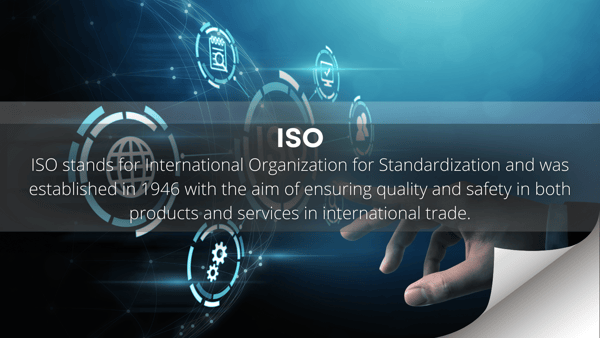ISO
ISO stands for International Organization for Standardization and was established in 1946 with the aim of ensuring quality and safety in both products and services in international trade. The purpose of ISO standards is to make global exchange of goods and services easier, more convenient, and more efficient. All standards set by ISO are voluntary in nature. However, more and more countries accept ISO standards as a mandatory requirement.

The name is derived from the Greek word "ISOS", which means equality. Regardless of country or language, the abbreviation of the name of the International Standardization Organization is always ISO. Nowadays, the three official languages of ISO are English, French and Russian.
Below are the two popular standards.
ISO 9001: Quality management system
ISO 9001 is the world's most famous management standard for companies and organizations of all sizes. The latest version of this ISO standard is ISO 9001:2015, which was released on September 24, 2015. Its purpose is to help companies work more efficiently and reduce product defects.
ISO 14001: Environmental management
ISO 14001 is a set of standards related to environmental management to assist organizations in reducing their adverse effects on the environment, and in complying with other environmental laws, regulations and policies.














